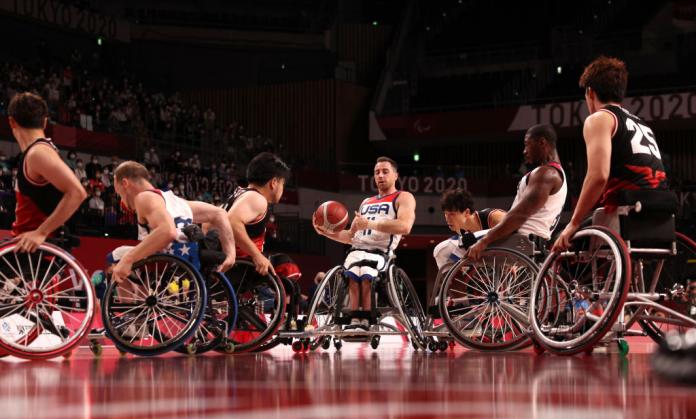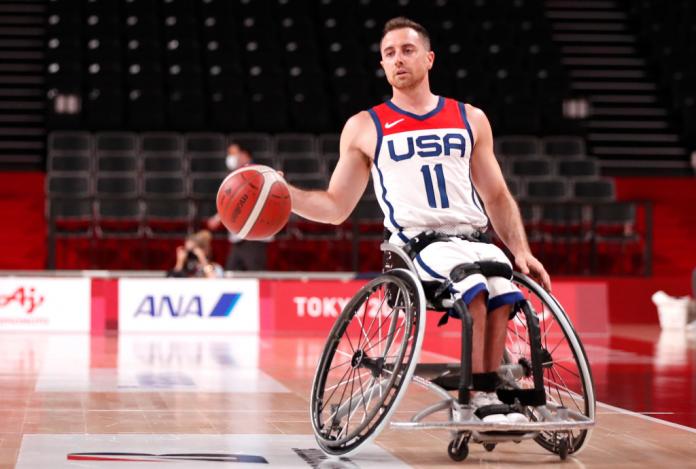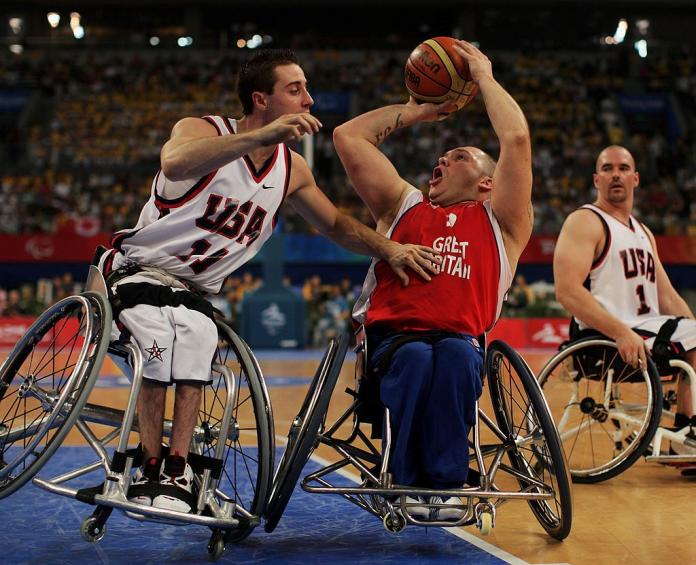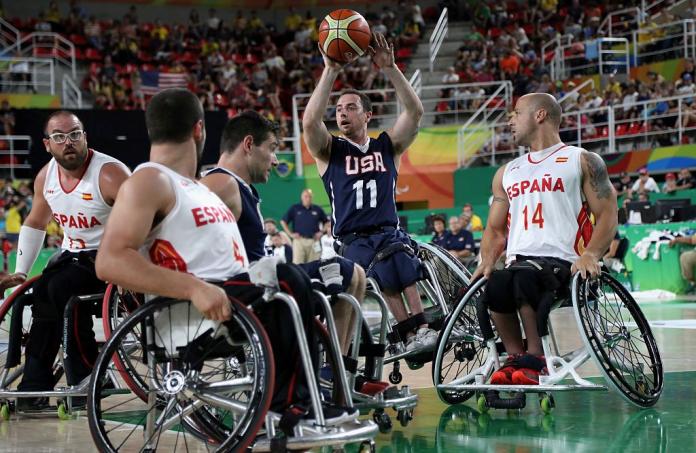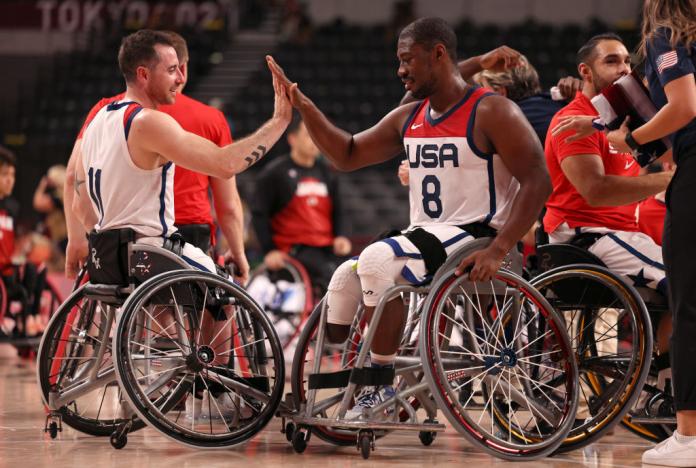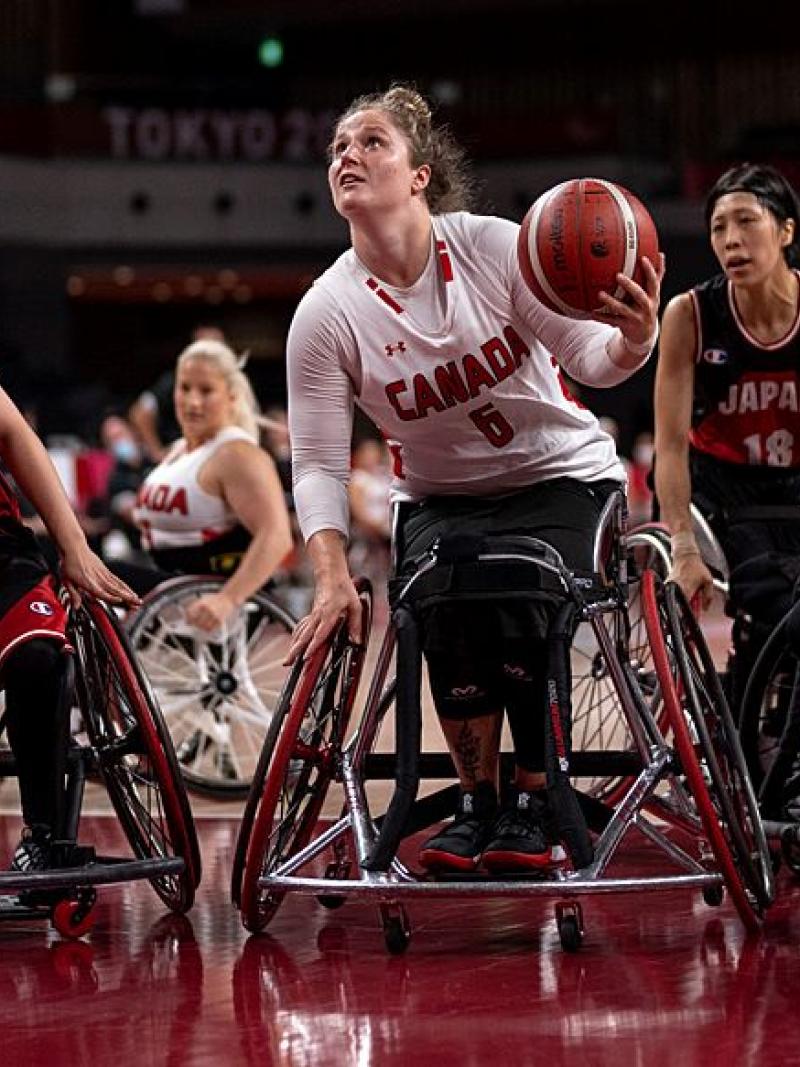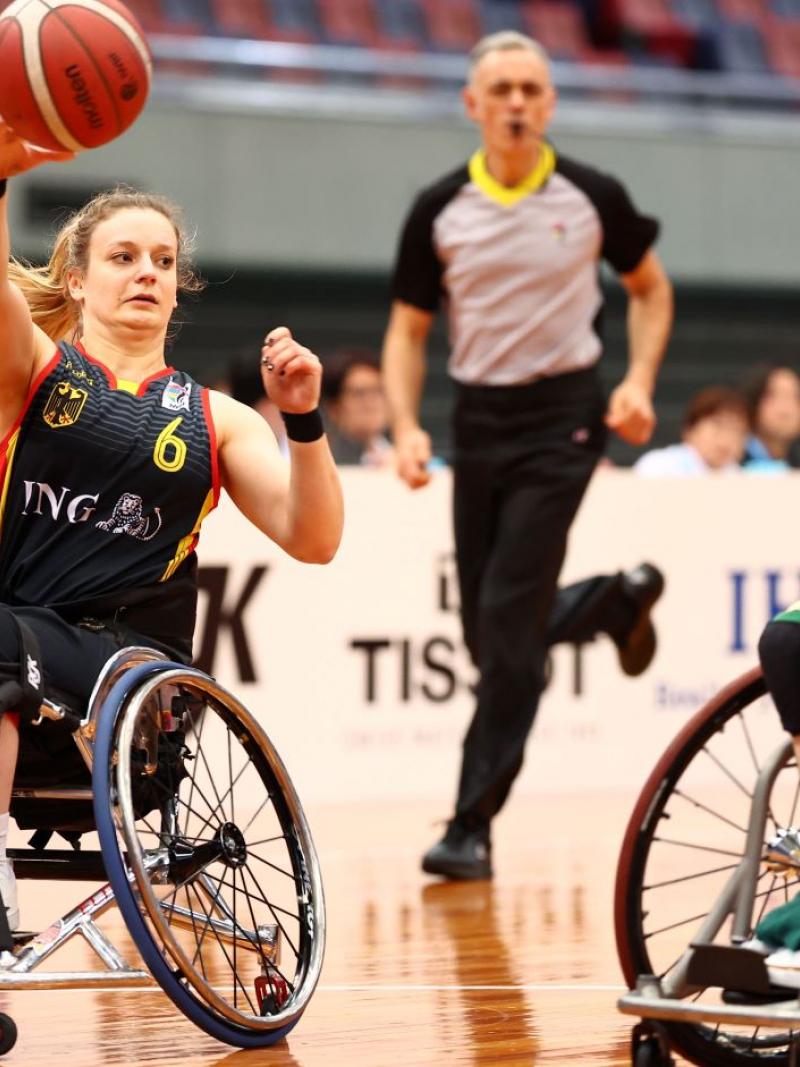Paris 2024: Steve Serio aims to crown career with third consecutive gold
Steve Serio led the USA to back-to-back gold medals in wheelchair basketball at Tokyo 2020. As we approach the Paris 2024 Paralympics, we caught up with Serio, who is training for his fifth Games 02 Jul 2024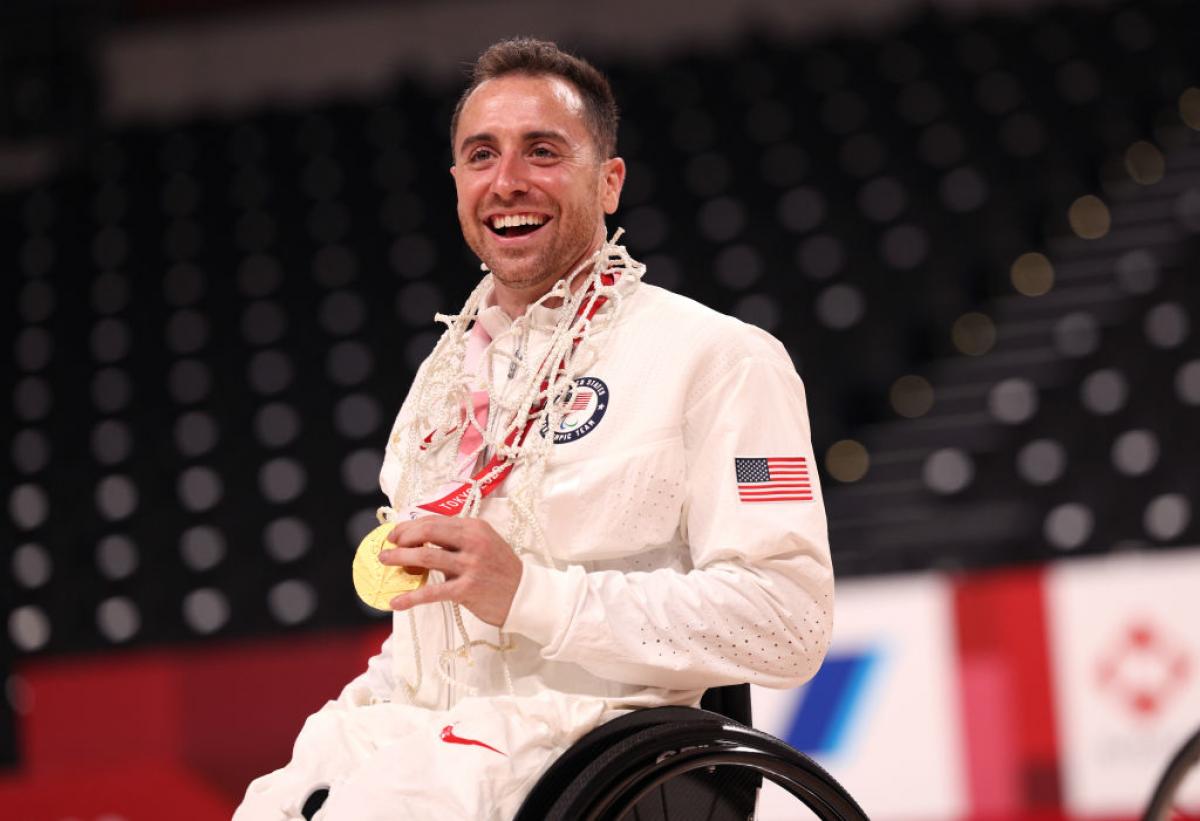
Having gone from a "starry-eyed rookie" to leading the USA wheelchair basketball team to back-to-back Paralympic gold medals, 36-year-old Steve Serio hopes to crown his career with a historic third consecutive title at Paris 2024.
Serio made his Paralympic debut at Beijing 2008 and has led the team to two golds and a bronze medal at the Games. As we approach Paris 2024, we caught up with Serio, who is training for his fifth Paralympics.
How are you looking forward to Paris 2024?
Words cannot describe how excited we all are for that. While it was nothing short of a miracle to compete in Tokyo in the midst of a pandemic, it never felt totally right to compete without friends, family and fans in attendance. This will be the world’s coming out party and I know that athletes at the Games will take full advantage of the moment and celebrate the unity of sport.
The USA also won the World Championships in 2022, how do you feel about coming into the tournament as world and Paralympic champions?
Coming in as favourites is what we expect and work for. Winning that World Championship meant a lot to us and we're looking to carry that momentum into the Games in Paris.
What would it mean to win a third consecutive Paralympic title?
It is something that has never been done in men's wheelchair basketball. It would be the perfect way to end a career in a sport that has given me everything I have to this day.
Looking back, what has wheelchair basketball meant for you in your life?
Finding it when I was 15 years old has been the most influential moment of my life. Before that I was a shy, insecure, and a sad child who only thought of the things I couldn't do. Wheelchair basketball has provided me with the confidence, work ethic and a positive mindset that has turned me into the player, teammate, person and leader I am today.
How did you get into wheelchair basketball?
I found the game through a physical therapist. I played able-bodied sports throughout my childhood but from the first time I played wheelchair basketball – also the first time I sat in a wheelchair – I knew the game would change my life. For the first time, I felt free from what made me different.
What has made you such a good player?
I have played under the best coaches in the world, such as Mike Frogley (CAN) and Ron Lykins (USA). They taught me the game, but also how to lead and to win. I am also a team sport athlete, caring more about team than about individual success. But most importantly, I love getting the best out of myself and the teammates around me.
What role have your friends and family had in this?
They have always been 100 per cent supportive of my dreams, picking me up when I'm down and bringing me back to earth when my head gets too big. They're there no matter what and I will always love them for that.
How do you look back at your Paralympic debut at Beijing 2008?
I was the starry-eyed rookie, wanting to meet every athlete, hear about their journey and to cheer on every USA athlete. I probably should've been more focused on basketball but we learned a very valuable lesson in Beijing; to be successful at the Paralympic Games you need more than just talent.
What is your strongest memory from Beijing?
I'll never forget that first opening ceremony and the in-between moments with the team, but also losing to Canada in the semis in double overtime, Pat Anderson (CAN) hitting a game-tying 3 in my face at the end of regulation to extend the game. It was an unforgettable and hard lesson to learn.
What was different at London 2012?
We knew how bad it hurt to come home empty handed four years earlier and we were a more resilient and stronger group in London. It showed us that the work we were putting in was leading somewhere special.
You won your first Paralympic medal in London, a bronze, what did that mean for you?
I'll never forget that. While it wasn't our ultimate goal, being on that podium proved that we belonged among the best teams in the world.
At Rio 2016 you won gold, how do you look back at that experience?
It was an unforgettable moment in my career. That team was one of the favourite teams I've ever been a part of and, in my opinion, one of the best, if not the best, men's team that has ever competed at the Paralympics.
What made you the best?
We were a motivated group of 12 strong athletes, always caring more about the success of the team than about anything else. For me, it was the end of a decade-long pursuit to bring home a gold medal for my country.
Did it change your life?
In some ways it changed everything, in others it changed nothing.
Yes, it opened more doors to sponsors, and notoriety from news outlets, but when I went back into the gym a few weeks after Rio, I was still the same player, looking to improve on my weaknesses. Winning didn't make the game easier or harder. There was just another goal to accomplish, in Tokyo.
At Tokyo 2020, you defended the title. What importance did your experience play in the dramatic end to the gold medal game against Japan where you led USA's comeback from a 56-51 deficit to a 64-60 win in the last five minutes?
As an athlete, you work every day to prepare yourself and the team for those types of moments. In the most dramatic moments of every game, you want to be able to help your team to victory. I look back on the end of the game not as a personal victory, but a victory for our entire USA campaign in Tokyo.
What went through your mind taking the final penalty shot?
I thought 'I'm ready for this.' You have to believe in yourself and your years of training to come through in a moment like that.
What were your emotions as it went in?
Proud, honoured, relieved, content and just so happy to have been able to deliver for my team.
How has your role in the team changed since Beijing 2008?
Drastically. In Beijing, I was just happy to participate. I was so nervous for the first few games there. Since then I've evolved into a leader for the USA. Being named captain of a Paralympic team is one of the most humbling experiences of my career.
Which life goals do you have?
The most influential moments in my life aren't where we've won Paralympic gold medals. It was the day I found wheelchair basketball. I'm committed to raising the awareness of adaptive sports so that no person with a disability feels like they can't explore their athlete endeavours. The impact I can have off the court is more important to me than the impact I can have on it and I'm looking forward to sharing my story and furthering the impact adaptive sports can have.
Discover more about wheelchair basketball and the 22 sports in the Paris 2024 Paralympic sports programme





